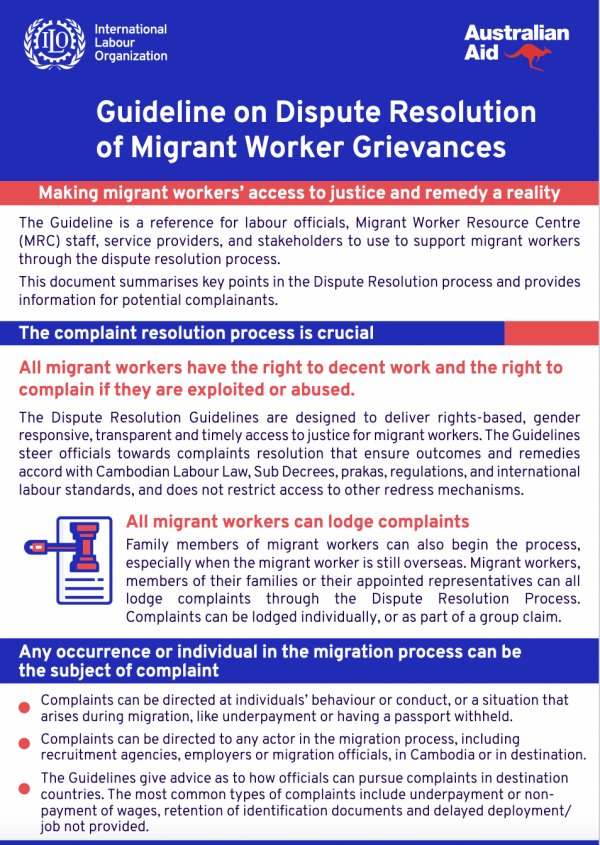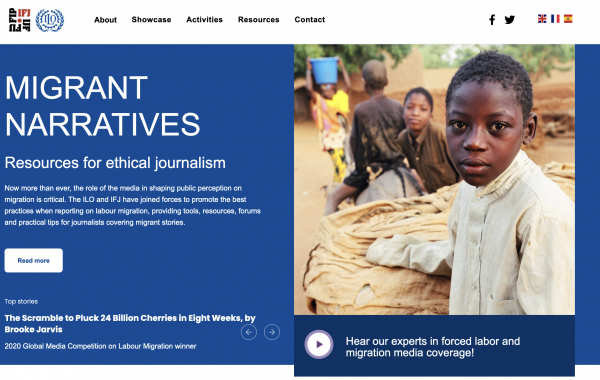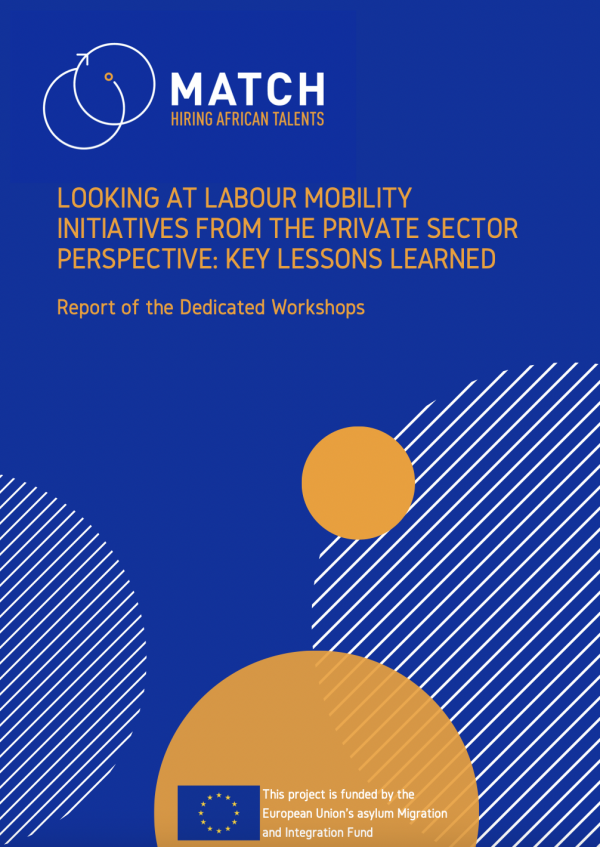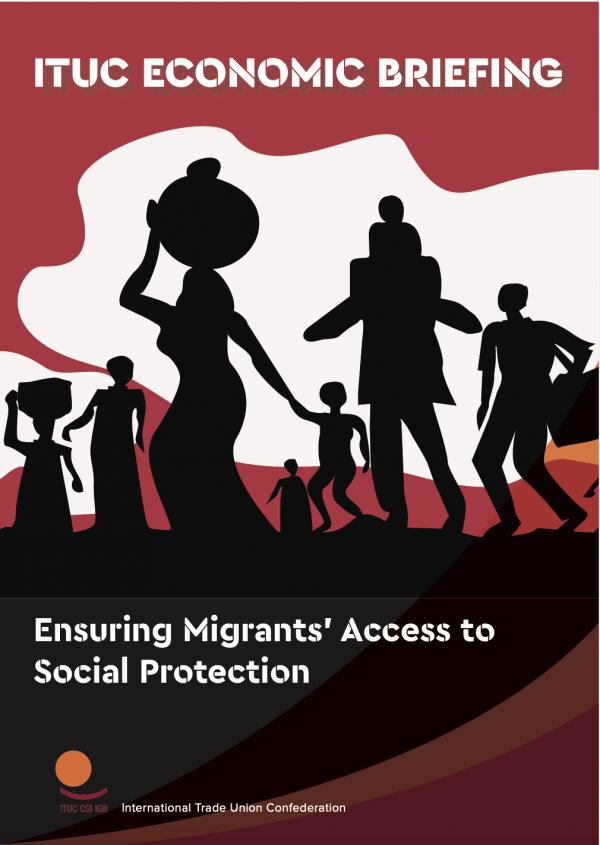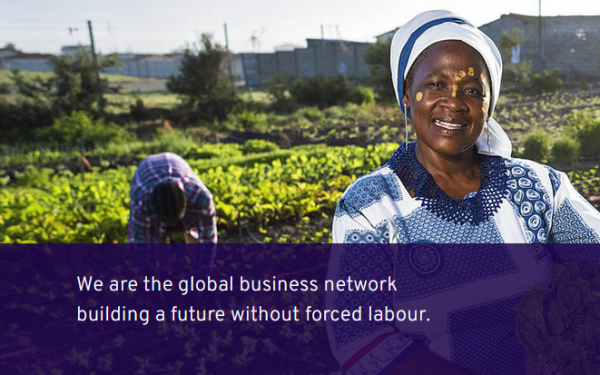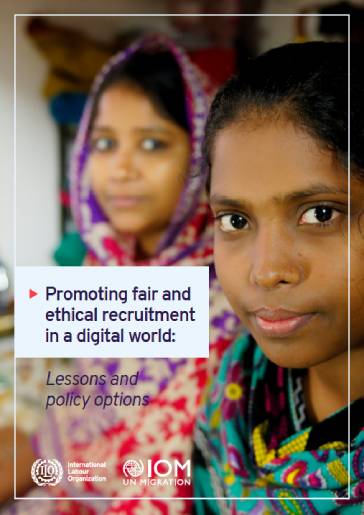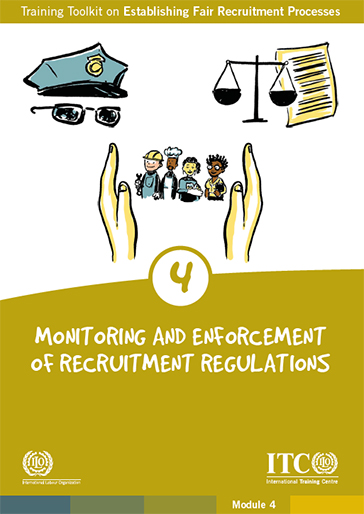Guideline on Dispute Resolution of Migrant Worker Grievances
The Guideline is a reference for labour officials, Migrant Worker Resource Centre (MRC) staff, service providers, and stakeholders to use to support migrant workers through the dispute resolution process.
The Dispute Resolution Guidelines are designed to deliver rights-based, gender responsive, transparent and timely access to justice for migrant workers. The Guidelines steer officials towards complaints resolution that ensure outcomes and remedies accord with Cambodian Labour Law, Sub Decrees, prakas, regulations, and international labour standards, and does not restrict access to other redress mechanisms.
Family members of migrant workers can also begin the process, especially when the migrant worker is still overseas. Migrant workers, members of their families or their appointed representatives can all lodge complaints through the Dispute Resolution Process.
Complaints can be lodged individually, or as part of a group claim. This document summarises key points in the Dispute Resolution process and provides information for potential complainants.
Type of document :
Country/Region :
Year of publication :
Theme :
Migrant Narratives
The International Federation of Journalists (IFJ) and the International Labor Organization (ILO) have joined forces to launch the Migrant Narratives project, a new digital platform which provides essential resources, tips, activities and best practices for media workers reporting migrants' stories.
Type of document :
Country/Region :
Year of publication :
Theme :
Looking at Labour Mobility Initiatives From the Private Sector Perspective: Key Lessons Learned.
The present report presents a summary of the views expressed by companies from the private sector established in the four EU Member States participating to the MATCH project which seeks to address workforce challenges by enabling young professionals from Nigeria and Senegal to work for companies in Belgium, Italy, Luxembourg or the Netherlands. The perspectives of the private sector were gathered through on-line awareness raising sessions and dedicated workshops aiming at highlighting the benefits of legal pathways for migration and skills partnerships with Africa. Careful listening and dialogue with companies allowed the project partners to better understand the concerns and motivations of companies in joining a project such as the MATCH project. Together with surveys and data collection, exchanges with companies are also deemed to be essential to follow closely the evolution of the labour market and stay agile to unexpected developments.
Type of document :
Country/Region : , , , , ,
Year of publication :
Theme :
ITUC Economic Briefing: Ensuring Migrants’ Access to Social Protection
Social protection is a universal human right, providing people with security against poverty, vulnerability and social exclusion. It is moreover a catalyst for inclusive economic growth.
Despite numerous international commitments to extend social protection, nearly half of the world’s population lack any access to these critical benefits and services, and coverage gaps are especially acute in low and middle-income countries.
Migrants are disproportionately excluded from social protection schemes, and their economic vulnerability is compounded by their underrepresentation in the labor market, concentration in precarious and low-paid work, discriminatory laws and entrenched xenophobia.
Legal exclusions to accessing social protection benefits, insufficient build-up of social security contributions within destination countries, lack of possibilities to preserve or transfer social security contributions within destination countries, practical barriers to accessing benefits, and migrant’s labour market exclusion are some of the main reasons for their lack of access. Increased globalization, conflict, demographic change and climate change – and the resulting migration due to these trends – all raise concerns about how to better address migrants’ vulnerability.
This brief examines the reasons for migrants’ exclusion from social protection systems and reviews some ways for closing these coverage gaps. It moreover outlines existing international frameworks related to migration and social protection, as well as provides some selected good practices at national level. Finally, it sets out unions’ key demands for ensuring universal social protection systems that are inclusive of migrants.
Type of document :
Country/Region :
Year of publication :
Theme : , ,
Promoting fair recruitment and employment: A guidance tool for hotels in Qatar
This Guidance Tool has been developed as a resource to promote fair recruitment and employment standards in the hospitality sector in Qatar. It aims to support hotel companies in Qatar to respond to labour rights challenges by implementing appropriate policies and exercising thorough and ongoing human and labour rights due diligence.
You can also directly access the checklists below:
Type of document :
Country/Region :
Year of publication :
Theme : ,
ILO Global Business Network on Forced Labour
The International Labour Organization’s (ILO) Global Business Network on Forced Labour (GBNFL) brings together the ILO with businesses of all sizes and sectors, and their networks, from around the globe to eradicate forced labour. Operating across all sectors, and geographies, ILO GBNFL members work to engage smaller enterprises, develop actionable resources and tools, and devise local solutions that help shape national frameworks to create lasting change.
The challenge
In 2016 there were an estimated 25 million people in forced labour globally. Of these 16 million were thought to be women and girls and 4.3 million children. The COVID-19 crisis is likely to have worsened the situation by exacerbating root causes of forced labour, such as poverty, discrimination, and lack of access to social protection.
Forced labour is present in every region in the world. Migrant workers, estimated by the ILO to number 169 million worldwide, are among those particularly at risk of becoming victims. Businesses are serious about eradicating forced labour, as demonstrated by the extensive number of initiatives. But the task is huge and new forms of collaboration are needed.
Target 8.7 of the United Nations’ (UN) Sustainable Development Goals (SDGs), adopted by all UN Member States, aims to eradicate forced labour by 2030. To turn this vision into reality, businesses and others need a collective and inclusive approach at global and country levels that ensures lasting impact.
A global business network
ILO GBNFL is a global business network coordinated by the ILO. This UN agency brings together governments, employers and workers to set international labour standards, develop policies and devise programmes promoting decent work. The network opened for membership in 2018.
ILO GBNFL reaches across sectors and geographies to advance the business case for an end to forced labour. The network is aligned with, and contributes to, other relevant international initiatives, in particular Alliance 8.7, the global partnership working to deliver on SDG Target 8.
ILO GBNFL key focus areas
Connect - Break silos by linking up business actors from across sectors and geographies to eradicate forced labour.
Convene - Support businesses to engage with other relevant stakeholders, including government bodies, to find sustainable solutions to the structural drivers of forced labour.
Innovate - Create spaces where members identify gaps, develop new ways of tackling forced labour, and devise methods to scale up solutions.
Support - Share clear-cut data, information and resources to help busy businesses take steps to tackle forced labour.
Our Members
ILO GBNFL members are businesses of all sizes and sectors, as well as employer and business membership organizations including industry trade groups and sectoral associations. Other business-led initiatives with complementary mandates and expertise can join as partners. By joining the ILO GBNFL members are called on to:
Eradicate. Take concrete steps to eradicate forced labour in all its forms in their organizations, supply chains, member organizations, sectors and beyond.
Advocate for a comprehensive and coordinated response to forced labour, including in dealings with government bodies
Uphold the principles of inclusivity and collaboration when working with other stakeholders to end forced labour.
Type of document :
Country/Region :
Year of publication :
Theme :
The Hiring Challenge
Many of us rely on domestic workers to help care for our loved ones and manage our homes. Most of us use an employment agency to help hire the right person. Yet finding a good employment agency is fraught with problems - unlicensed businesses, illegal fees, hidden costs, and poor service.
The International Labour Organization (ILO) has launched a new immersive online gaming experience, aimed at raising awareness amongst employers of migrant domestic workers of the risks of deception and abuse faced by both workers and employers during the hiring process. It provides employers with guidance on how they can contribute towards positive change.
The Hiring Challenge casts the user in the role of a soon-to-be parent trying to hire a migrant domestic worker in Hong Kong (China) using an employment agency. The player’s task is to navigate a series of real-life choices in order to find an agency that provides a professional service, whilst at the same time not exploiting the worker they will eventually hire. The task is harder than it sounds.
The gamified experience has multiple outcomes and provides the user with recommendations on how they can improve their real-world strategy based on their final score.
The experience draws on Behavioural Insights research and is part of an ongoing collaboration with the University of Geneva to identify message frames targeting employers of domestic workers that are most likely to trigger behaviour change. The Hiring Challenge website is produced by the FAIR II project, with the support of the Swiss Development Cooperation, and is part of the wider work done globally to promote fair recruitment through the ILO Fair Recruitment Initiative .
Type of document :
Country/Region :
Year of publication :
Theme : , , , ,
Promoting fair and ethical recruitment in a digital world
This joint report by the ILO and the International Organization for Migration (IOM) explores innovative state-facilitated digital technology platforms from four different contexts, with a focus on the Employment Permit System of the Republic of Korea, Musaned from the Kingdom of Saudi Arabia, eMigrate from the Republic of India and the European Network of Employment Services.
The study maps four examples of state-facilitated digital technology platforms that assist the recruitment, placement, and/or job matching for migrant workers. In reviewing some of the promising practices and lessons learnt, the study aims to offer preliminary guidance to States developing similar online applications and platforms, while also discussing possible approaches on how to best leverage new techniques and technologies, including blockchain technology. When designed and implemented in an inclusive way, these digital technology platforms have the potential to promote institutional transparency and fairness, and can reduce the costs of labour migration and limit the potential for collusion between private recruitment agencies.
Type of document :
Country/Region : , , , ,
Year of publication :
Theme : , ,
Use of digital technology in the recruitment of migrant workers
This research report shows that digital technology can play a significant role in making safe labour migration and fair recruitment a reality. It also gives valuable recommendations for how to make this happen.
Digital technology could be a game changer in migrant worker protection. The number of internet users around the globe continues to climb and the development of information and communications technologies (ICT) has been unprecedented since the onset of COVID-19. This has resulted in new digital products, including those aimed at migrant workers, such as apps, websites and web portals, internet radio, and electronic tickets.
How can digital ICT facilitate safe labour migration and fair recruitment? To answer this question, the ILO partnered with the United Nations University Institute in Macau to better understand why and how migrant workers use digital technology. A mixed-method study was carried out during the second half of 2020. It included a desk review, a survey, focus groups, key informant interviews, and a landscape analysis of relevant existing digital products.
Based on the research, the ILO is currently developing a short summary tool featuring tips and advice on how to design, develop and promote digital products for migrant workers. The ILO is also organizing a workshop for relevant stakeholders to share lessons from the research and discuss their implications. Participants in the workshop will jointly develop a roadmap setting out the next steps in unleashing the potential of digital technology for migrant workers.
The research is part of the Integrated Programme on Fair Recruitment (FAIR, phase II), which falls within the framework of the ILO’s Fair Recruitment Initiative (FRI) .
Type of document :
Country/Region :
Year of publication :
Theme : , , ,
ITC-ILO training: Monitoring and enforcement of recruitment regulations - Establishing Fair Recruitment Processes
By the end of this module, participants will be able to:
- Understand governments’ responsibilities in regards to the monitoring and enforcement of recruitment regulations
- Have an introductory knowledge of the use of monitoring as an enforcement mechanism and its contribution to ensuring the fair recruitment of workers
- Recognize the key challenges associated with complaints mechanisms and access to justice for workers, including migrant workers
- Explore the most commonly used legislative mechanisms for prosecuting recruitment abuses
- Appreciate the particular role of trade unions and non-governmental organizations in promoting and monitoring fair recruitment
- Become familiar with pilot initiatives of workers’ organizations to protect and empower workers during the recruitment and placement process
- Become acquainted with self-regulation mechanisms adopted by private recruitment agencies
Type of document :
Country/Region :
Year of publication :
Theme : ,
Subscribe to the Fair Recruitment Initiative Newsletter
Sign up to receive news delivered to your inbox.

